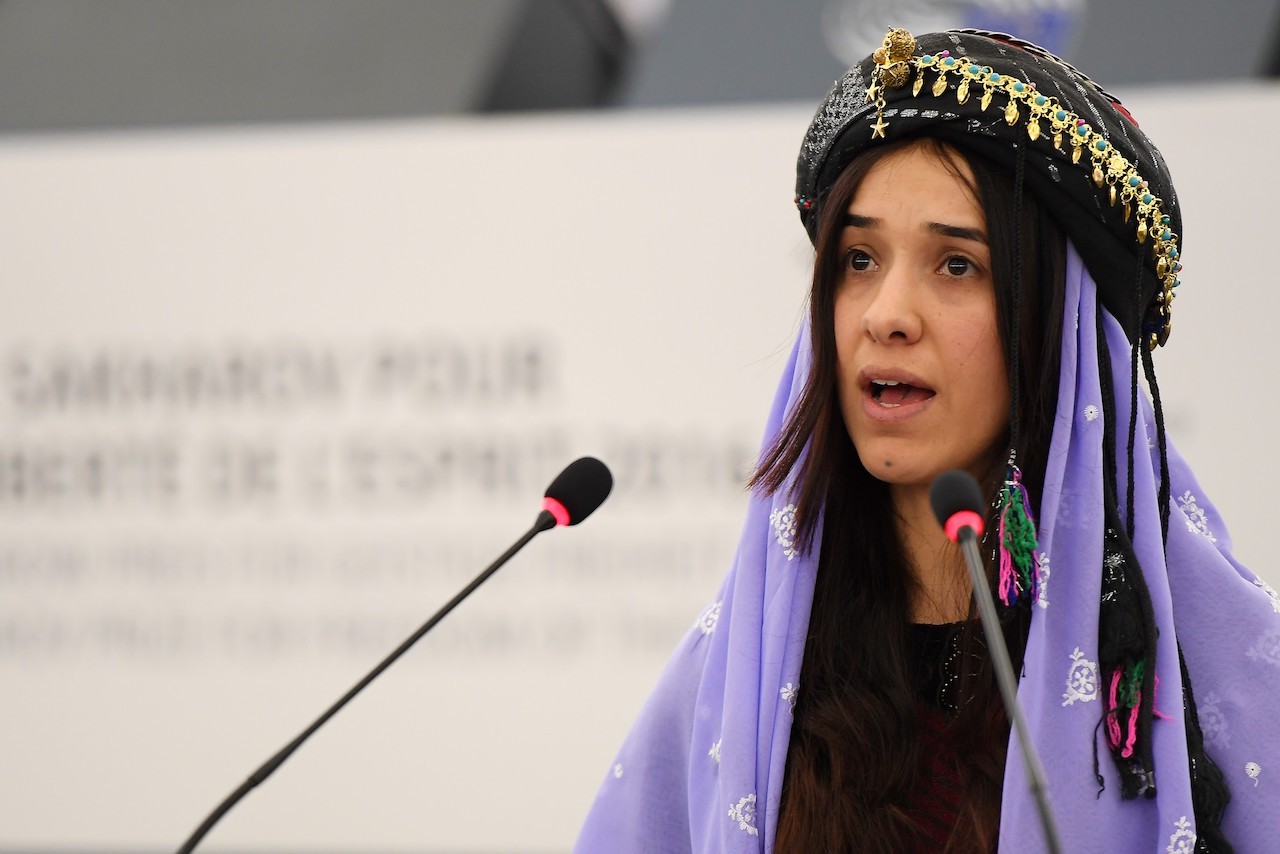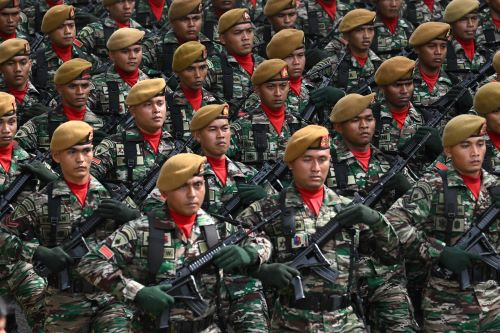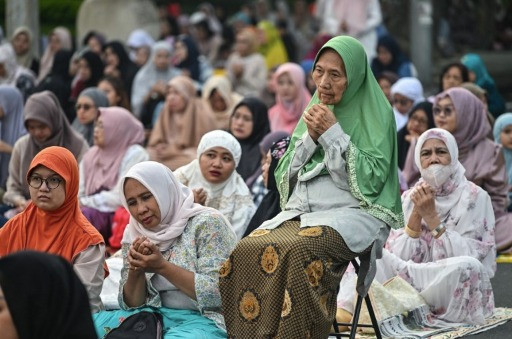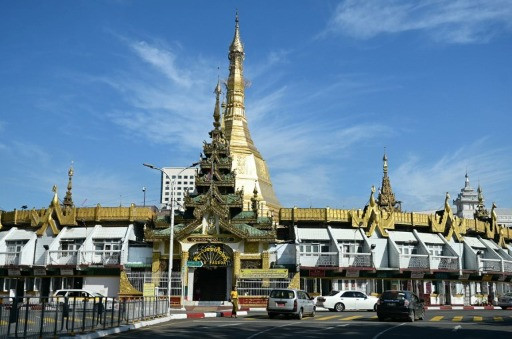Insight: 2018 Noble Peace Prize reminder of wartime sexual violence
In Iraq and Syria, the Islamic State (IS) group enslaved women, complete with price tags, and trafficked them at markets where they would be sold into slavery.
Change Size
 Nadia Murad, public advocate for the Yazidi community in Iraq and survivor of sexual enslavement by the Islamic State jihadists, delivers a speech after being awarded co-laureate of the 2016 Sakharov human rights prize at the European parliament in Strasbourg. (AFP/Frederick Florin)
Nadia Murad, public advocate for the Yazidi community in Iraq and survivor of sexual enslavement by the Islamic State jihadists, delivers a speech after being awarded co-laureate of the 2016 Sakharov human rights prize at the European parliament in Strasbourg. (AFP/Frederick Florin)
H
uman rights advocate Nadia Murad and physician Denis Mukwege have been awarded the 2018 Nobel Peace Prize for their efforts in bringing wartime sexual violence into the spotlight. This is a timely reminder that sexual violence is being systematically and strategically used as a tool for the expansion of widespread terror and eventual military success around the world.
In Iraq and Syria, the Islamic State (IS) group enslaved women, complete with price tags, and trafficked them at markets where they would be sold into slavery. Indeed, the temptation of sexual slavery was used to recruit young men to join IS, or Daesh. For those opposing Daesh, meanwhile, it inculcated fear, undermined family structure and polluted the blood line of the population.
The sexual violence was gruesome, with those refusing being burned alive in cages as examples, women and girls sold in markets, either electronically over a mobile phone messenger app where their photos and slave numbers were exchanged, or in market halls and prisons at prearranged times.
They were then chained, beaten, raped and passed around like animals among the men. Women and girls began to scratch and bloody their own appearance in an attempt to make themselves unattractive to potential buyers. Others preferred to take their own lives by slitting their wrists or throats, hanging themselves or jumping off buildings.
In total, 6,383 Yazidis were enslaved and transported to IS prisons, military training camps and the homes of fighters across eastern Syria and western Iraq, according to Iraqi parliament member Vian Dakhil.
Murad was among the victims, who after three months imprisonment managed to escape and make her way to Germany as a refugee.
The extraordinary number of Yazidi victims is now coming to light since IS has begun to lose territory in both Iraq and Syria, allowing the victims to be freed. Yet if this provides hope for the progress of humanity in the Middle East, there are still the minority for whom the light of hope has yet to dawn.
Besides Congo and Iraq, sexual violence has also been used as a weapon of war in other parts of the world. This includes Myanmar, a country whose state counsellor, Aung San Suu Kyi, was herself awarded a Nobel Peace Prize in 1991.
As the Independent International Fact-Finding Mission reported, women and girls were the victims of sexual violence by the country’s armed forces. Similar to the IS strategy, sexual violence has been used to humiliate, terrorize, instill widespread fear and collectively punish the victims — in this case, the Rohingya. It is also a calculated tool to force them to flee their homeland and prevent their return.
The mission chaired by Indonesia’s Marzuki Darusman collected credible information on brutal rapes, including gang rapes, and other forms of sexual violence, often targeting girls and young women.
The team was convinced by women who showed fresh and deep bite marks on their faces and bodies sustained during acts of sexual violence. Information received from medical experts and counsellors also overwhelmingly corroborated the accounts of rape survivors.
Worse, the recent report of Doctors Without Borders (MSF) said that over half the girls they had treated following sexual assault were under 18 years old. Of those fleeing Rakhine state who had come to the clinic for treatment relating to rape, around half were aged 18 or under, including one 9-year-old girl and several others under the age of 10. They had fresh and deep bite marks on their faces and bodies, and their body parts had been mutilated. Many of those who were raped even died from their injuries.
Given the similarities between the Yazidi and Rohingya, three pressing courses of action need to take place.
First, hard though it may be, victims should be encouraged not to accept traditional social codes that require them to remain silent and ashamed of the abuses to which they have been subjected. Second, human rights intervention is urgently needed to remediate the appalling violence against the victims, because failure to do so would be a betrayal of the women and girls brave enough to share their trauma.
Third, is the need to intensify joint international efforts to outlaw such violence and to prosecute the perpetrators, holding them fully responsible for their actions.
Thus, in the case of the Rohingya violence, for instance, Marzuki and other investigators have called for a series of appropriate actions.
Top priorities could include the United Nations Security Council imposing an arms embargo on Myanmar, subjecting its officials to targeted sanctions and setting up an ad hoc tribunal to try suspects or refer them to the International Criminal Court in The Hague, the Netherlands.
The award of this year’s Nobel Peace Prize is a reminder of the need to end this unacceptable use of sexual violence against women as a weapon of war, the need for protection and care for the survivors, the need to bring the perpetrators to justice and hold them fully accountable for their actions.
***
HS Dillon and Bahtiar Manurung are respectively the co-founder and operations director at the Foundation for International Human Rights Reporting Standards (FIHRRST), where Marzuki Darusman is chairman and co-founder.










